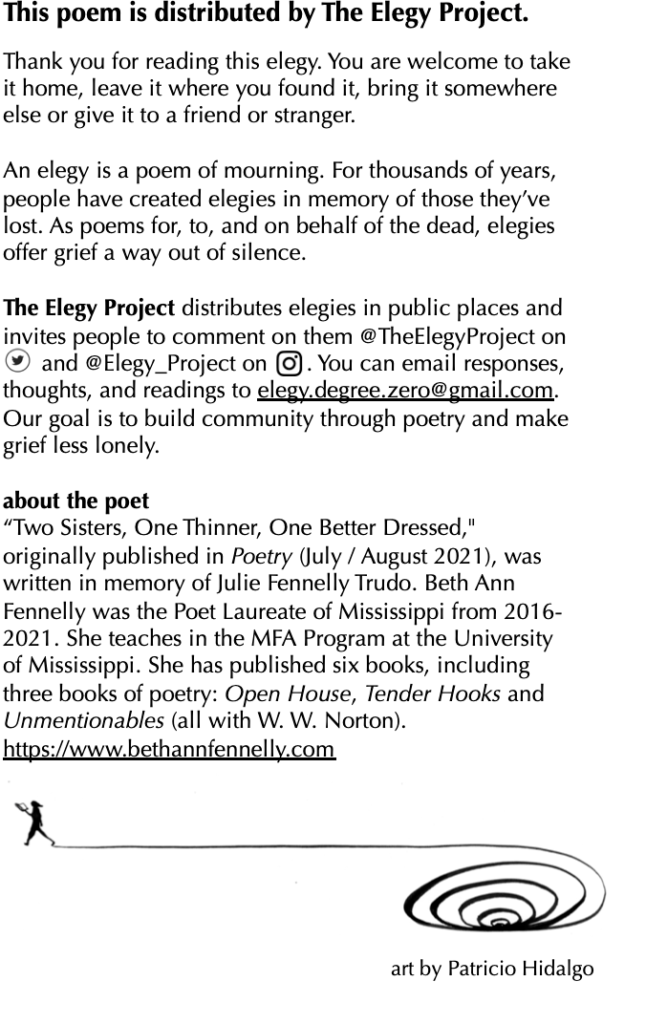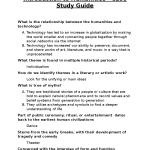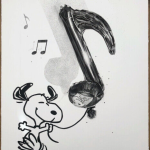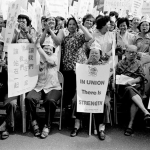The Elegy Project is an innovative public initiative dedicated to exploring the emotional landscapes of grief and loss through poetry workshops and community engagement. Recently hosted in Harvard’s inspiring Woodberry Poetry Room, this project invites both poets and novices alike to delve into the profound tradition of elegy, crafting personal expressions of mourning. Guided by seasoned poets Karen Elizabeth Bishop and David Sherman, participants have the opportunity to reflect on their experiences and connect with others in a safe and supportive environment. By breaking the solitude often associated with loss, the Elegy Project aims to transform personal grief into shared narratives, fostering a sense of community. Through creative writing and thoughtful discourse, this initiative not only honors the art of elegy but also champions the healing power of poetry in our lives.
Renowned for its commitment to community poetry, the Elegy Project offers an invaluable platform for individuals to voice their feelings surrounding loss and remembrance. Engaging in creative writing activities allows participants to explore the intricate connections between personal experiences and universal themes of grief. This initiative underscores the importance of expressing sorrow collectively, inviting diverse voices to contribute to a conversation that resonates deeply within the heart of humanity. Sessions held at the Woodberry Poetry Room serve as a sanctuary for those seeking solace, illustrating how poetry can serve as a bridge for emotional healing and connection. By celebrating the art of elegy, this project nurtures a communal spirit that uplifts the practice of writing while enhancing the collective understanding of our shared human experiences.
Exploring the Elegy Project: A Community Approach to Poetry
The Elegy Project represents a significant intersection of community engagement and the timeless art of poetry. Founded by Karen Elizabeth Bishop and David Sherman, it invites individuals to connect through their shared experiences of loss and grief. By situating workshops within the welcoming atmosphere of Harvard’s Woodberry Poetry Room, the project showcases how poetry can serve as a therapeutic outlet. Participants, ranging from seasoned poets to enthusiastic novices, come together to craft elegies, thereby transforming personal grief into shared narratives that resonate universally.
The workshops emphasize collaboration, offering participants the opportunity to share their poems with one another. This communal aspect not only fosters a supportive environment but also encourages writers to explore the depths of their emotions. As David Sherman articulates, the goal of the Elegy Project is to make grief less isolating by providing a space where individuals can express their sadness and find solace in the act of writing. This unique approach to community poetry enriches the local arts scene and reminds us all of poetry’s potential to heal.
The Role of Poetry Workshops in Navigating Grief and Loss
Poetry workshops like those associated with the Elegy Project play a crucial role in helping individuals navigate the complex emotions tied to grief and loss. During these sessions, participants are encouraged to articulate their feelings through the powerful medium of poetry, allowing for a release that is often hard to achieve in conversation alone. The act of writing elegies—poems that honor and mourn the deceased—serves as both a tribute and a therapeutic endeavor. This dual purpose transforms personal experiences into communal art, making the painful journey of grief a shared human experience.
Furthermore, the prompts provided by the workshop leaders draw inspiration from the Poetry Room’s extensive collection, guiding participants to explore various poetic forms and styles. By fostering creativity in this structured yet open environment, participants are inspired to transcend their sorrow and articulate their unique stories. In this way, the Elegy Project not only legitimizes personal grief but also highlights the importance of storytelling in the healing process—reaffirming the idea that every voice, every poem, matters.
The Power of Elegy in Modern Poetry
Elegy has long been regarded as one of the most poignant forms of poetry, as it encapsulates the profound human experiences of mourning and reflection. The Elegy Project shines a light on this tradition, emphasizing how the COVID-19 pandemic has intensified feelings of loneliness and loss. This modern context gives rise to new interpretations of elegy, inviting poets to engage with contemporary themes while honoring age-old poetic conventions. By integrating the personal impact of current events, participants are able to craft poems that resonate deeply with both themselves and their readers.
Moreover, the dynamic exchange during the workshops allows for rich discussions about the nature of loss and the role of poetry in processing grief. Participants often discover that writing elegies is not just about mourning; it serves as a means of celebrating life and embodying the memories of those who have passed. Through collective exploration and creativity, the Elegy Project reinforces the idea that elegy can be both a somber farewell and a vibrant expression of love and connection.
Grief and Community: The Therapeutic Benefits of Writing
Writing about grief can be an isolating endeavor, but initiatives like the Elegy Project seek to turn this solitary process into a shared experience. By convening groups of individuals to participate in poetry workshops, the project fosters a sense of community among those navigating similar feelings. This communal writing experience allows participants to support one another, share insights, and create an atmosphere of empathy that makes it easier to confront painful emotions. It becomes evident that the act of writing collaboratively can alleviate some burdens associated with grief, making it a source of strength and healing.
Additionally, engaging in creative writing during workshops introduces a constructive outlet for processing loss. The exploration of poetry through collaborative prompts encourages individuals to articulate their experiences more openly. The focus on community poetry not only facilitates healing but nurtures artistic expression, allowing participants to explore their identities as writers. For many, the workshop experience provides newfound confidence in their creative capabilities, transforming grief into something tangible and meaningful through the written word.
Innovative Approaches to Creative Writing
Creative writing workshops like those organized by the Elegy Project embrace innovative approaches to inspire budding poets. By utilizing prompts derived from literature housed at the Woodberry Poetry Room, participants are encouraged to experiment with different styles and themes. This flexibility invites creativity to flourish, allowing individuals to explore their unique voices and craft poetry that reflects their personal experiences. Such methodologies highlight the importance of accessible poetry, making it clear that everyone has the ability to contribute to the art form, regardless of their prior experience.
Furthermore, the workshops create a space for playful experimentation, encouraging participants to mingle various poetic elements. Leaders like Bishop and Sherman advocate for a deconstructed approach to anthology, where immediacy and accessibility take precedence. This adaptability empowers individuals to move beyond traditional structures, providing fresh perspectives that can invigorate their writing. By dismantling the barriers often associated with formal poetry, the Elegy Project paves the way for new forms of creative expression that resonate in our evolving culture.
Engaging with Literature to Foster Connection
One of the central aims of the Elegy Project is to foster connections through literature, showing how poetry can create meaningful interactions even among strangers. In combining readings and workshops, organizers provide an immersive experience where participants not only write but also engage with published works that inspire them. The overlap between reading and writing fosters a dialogue that can lead to profound insights and enhances the participants’ understanding of their own creative processes. This interplay between literature and personal experience can catalyze new ideas and encourage participants to reflect on their own lives through the lens of poetic expression.
Moreover, by promoting accessibility to poetry, the project embarks on a mission to democratize the literary arts. When poetry is intertwined with personal narratives of grief and loss, it has the potential to resonate with a wider audience. Participants come away from workshops not only with polished poems but also with a deeper appreciation for how shared literature can connect people from diverse backgrounds. This acknowledgment of collective human experiences through poetry underscores the importance of initiatives that celebrate community engagement and cultural connections.
The Legacy of the Elegy and Its Modern Interpretations
The elegy has a rich history as a poetic form, often used to mourn the loss of loved ones while celebrating their lives. The Elegy Project invites modern poets to reinterpret this tradition, inviting diverse perspectives that reflect contemporary experiences of grief. The workshops serve as a springboard for participants to explore what elegy means within their context, leading to innovative poetic expressions. By examining the evolution of elegy, attendees can draw inspiration from both historical and modern examples, creating poems that bridge the gap between the past and present.
Through the lens of contemporary struggles, especially those influenced by the pandemic, poets are encouraged to craft elegies that resonate with today’s society. The incorporation of personal experiences, cultural references, and unique styles ensures that these modern elegies remain relevant. In doing so, the Elegy Project keeps the tradition alive while adapting its themes to mirror current sentiments, proving that poetry remains a vital means of processing the human experience.
Connecting Lives Through the Art of Poetry
Poetry has the unique ability to link individuals, forging bonds through shared experiences, particularly in times of loss. The Elegy Project emphasizes this aspect of poetry, allowing participants to find common ground in their individual narratives. Through the act of writing elegies, poets confront their own grief while simultaneously connecting with others who share similar feelings. This collective journey not only validates individual experiences but also underscores the power of art to heal and bridge divides between people.
By highlighting personal stories through community poetry, the Elegy Project serves as a catalyst for connection and understanding. Participants leave the workshops with not only their poems but also a sense of belonging to a community that values emotional expression. Such initiatives illustrate how the art of poetry extends beyond personal reflection, encouraging a collective engagement that enriches the community and affirms the shared human condition. In this way, elegy becomes more than just a poetic form; it becomes a means to honor lives and create lasting connections.
The Impact of Public Poetry Initiatives
Public poetry initiatives, like the Elegy Project, demonstrate the transformational power of art within communities. By actively placing poetry in public spaces, the project raises awareness about the significance of grief and the shared human experience of loss. The initiative challenges the notion that poetry is solely for academia by inviting everyone to participate in the creative process, thus fostering a community dialogue around these themes. In this sense, public poetry becomes a vehicle for reflection, connection, and healing in the face of adversity.
Through the distribution of poem cards—a concept rooted in accessibility—participants become advocates for poetry in everyday life. The project not only encourages individuals to consider their own experiences with grief but also extends an invitation for others to engage with poetry. The impact of such public initiatives is profound, as they plant seeds of creativity and connection that extend beyond the walls of the workshop, enriching the communal landscape of poetry and affirming its role as a vital part of human expression.
Frequently Asked Questions
What is the Elegy Project and its relation to community poetry?
The Elegy Project is a public poetry initiative that aims to make the experience of grief less lonely by providing opportunities for community poetry creation. It encourages participants to write and reflect on their own elegies, exploring themes of loss and remembrance, and it promotes a sense of connection through shared experiences.
How does the Elegy Project incorporate creative writing workshops?
The Elegy Project incorporates creative writing workshops, such as those held at Harvard’s Woodberry Poetry Room, where participants engage in crafting their own elegies. These workshops provide a supportive environment for individuals to express their feelings about grief and loss through poetry, guided by experienced facilitators.
What role do poetry workshops play in addressing grief and loss in the Elegy Project?
Poetry workshops in the Elegy Project serve as a space for individuals to articulate their feelings surrounding grief and loss. By writing elegies, participants explore personal emotions and create meaningful connections with others, transforming solitary experiences of mourning into shared reflections within the community.
How is the Elegy Project connected to Harvard’s Woodberry Poetry Room?
The Elegy Project collaborates with Harvard’s Woodberry Poetry Room, utilizing its resources to host workshops and readings. This partnership enhances the community’s access to poetry and encourages participants to draw inspiration from the Poetry Room’s extensive collection, enriching their creative writing process.
What impact has the Elegy Project had on participants and the community?
The Elegy Project has positively impacted participants by fostering a sense of belonging and reducing feelings of isolation during times of grief. It encourages communal engagement with poetry, allowing individuals to find solace in shared experiences and cultural expressions of loss.
How does the Elegy Project aim to make grief less lonely?
The Elegy Project aims to make grief less lonely by facilitating workshops that encourage individuals to share their elegies and engage in communal poetry creation. Through public displays of poetry and organized events in spaces like the Woodberry Poetry Room, it creates opportunities for connection and support among those experiencing loss.
Who can participate in the Elegy Project’s poetry workshops?
The Elegy Project’s poetry workshops are open to anyone interested in exploring poetry, regardless of their prior experience. Participants range from seasoned poets to those new to creative writing, creating a diverse community that shares the common goal of processing grief through art.
What is the significance of using prompts in the Elegy Project’s workshops?
Using prompts in the Elegy Project’s workshops is significant as it helps participants overcome creative blocks and encourages them to start writing. Prompts serve as inspiration, allowing individuals to explore their thoughts on grief and loss in a structured way, making the writing process more accessible and enjoyable.
| Key Points |
|---|
| The Elegy Project is a community initiative designed to bridge loneliness and grief through poetry. |
| Led by Karen Elizabeth Bishop and David Sherman, it combines workshops and public poetry distribution. |
| The project emerged from the isolation experienced during the pandemic and aims to support community healing. |
| Participants include both poets and non-poets from diverse backgrounds, engaging in creative expression. |
| Elegy as a poetry form addresses loss, mourning, and the human experience, enhancing emotional understanding. |
| Workshops utilize prompts and resources to help participants tap into their creativity. |
| The Elegy Project emphasizes accessibility of poetry for everyone, encouraging communal creation. |
Summary
The Elegy Project is a profound initiative highlighting the significance of poetry in processing grief and connecting communities. By fostering a space where personal experiences of loss are shared through elegy, the project not only honors those missed but also creates a collective environment of healing and creativity. Through workshops and public engagement, the Elegy Project empowers individuals from all walks of life to embrace their emotions and express themselves through the written word.










